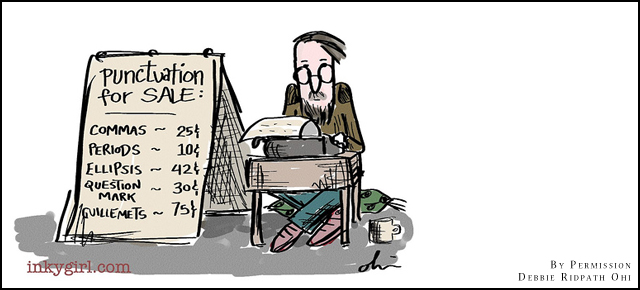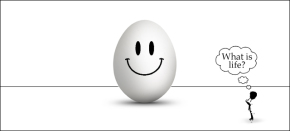My oldest son reminded me recently, “There are three kinds of people in the world: Those who can count, and those who can’t.”
Now reminded, let me add, “There are two kinds of punctuation in the world: The kind that helps, and the other kind.”
I was having a discussion about punctuation a few days ago, and the noted author, Cormac McCarthy, sashayed into the conversation. McCarthy is a punctuation minimalist. Some folks like that writing style.
I don’t.
Punctuation plays an important role, which is to parlay the written word into something that closely resembles the spoken word. In order to do that, guides that reside in the background are needed. Even folks who speak as if they care not a whiff about grammar, spelling, proper pronunciation and the like, (choose your own celebrity), will almost always ensure — by pause and emphasis — they don’t have to repeat themselves to be understood.
Minimizing punctuation, to my way of thinking, is like abstaining from using “the”, “and” and “or” from all writing. Granted, adding too much punctuation is like adding too much sweetening agent to one’s coffee. Blyah! Ruins everything. But only fools add commas, semi-colons and quotes willy-nilly.
Quick Aside
Yes, it’s very much like, when one is asked a question, one begins every frigging answer with “So”. Or inserting “Like” multiple times in one’s sentence. It’s irritating, and it demonstrates one’s ear is tragically distanced from one’s mouth. More on all that later.
We Return To Punctuation
No. Truly thoughtful and considerate writers use punctation to aid their readers. By inference then, we can conclude that the demented are not considerate. That’s nothing personal. Just a simple deduction.
I’m told the demented are also quite prone to holding nasty grudges about being called demented, but that’s a different topic for a different day.
Anyway, here’s a comment from a thread at eNotes regarding McCarthy’s lack of punctuation:
“I have just finished The Road (and had read his other books earlier) and in my opinion this practice actually interferes with the clarity of the writing, in part because of the inconsistency within a given work. For example, he uses plenty of apostrophes for certain kinds of contractions but never seems to use them for a contraction of something+not. Therefore, we have “cant,” “wont,” etc., but also “it’s,” “that’s,” etc. I object to the inconsistency on aesthetic as well as stylistic grounds (similar problems would occur with tense shifts), but beyond that I cannot see any advantage to spelling “can’t” and “won’t” in a manner identical to words that mean something entirely different, since one of punctuation’s functions is to disambiguate, e.g., “its” from “it’s.” There are ways to reduce unnecessary punctuation without resorting to an idiosyncratic practice that accomplishes little except to interpose “hiccups” in the reader’s experience. Overall, his books are beautifully crafted but every time I pick one up I have to mentally hold my nose over this practice, which I consider an affectation.”
There you have it. Someone agrees with me.
Those who disagree are free to . . . well . . .
have if its your wont a nice day






